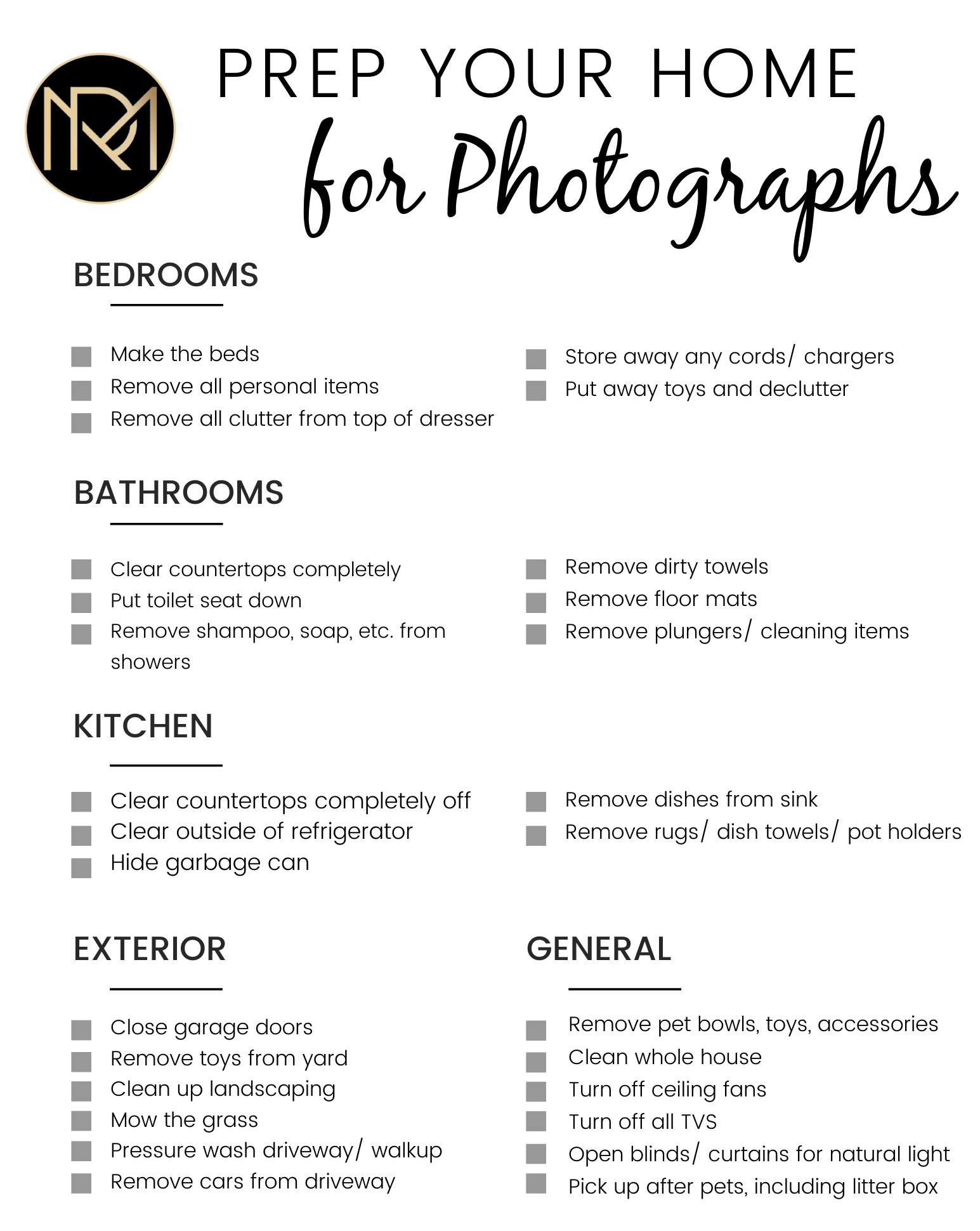
• Start spreading the word. Just because your home isn’t technically ready for showings yet doesn’t mean that you can’t start the process of letting people know it will be available. Some realtors will provide you with a “coming soon” sign that you can post up in your front yard, but even if yours doesn’t, you can take the initiative and start letting people know on your social channels.
• Toss out, recycle, or donate what you don’t need anymore. You may not be ready to pack up and move yet, but that doesn’t mean you shouldn’t be getting rid of stuff. Buyers want to be able to see themselves in homes when they go for a showing, and having a bunch of the previous owner’s things lying around can really mess with that vision.
• Start staging. Staging is the art of designing your home to highlight its best features. And even if decorating isn’t your strong suit, it’s a part of the home selling process you can’t really ignore—49% of buyers’ agents state that home staging has a positive effect on how buyers view a home, according to the National Association of Realtors’ Staging Stats report, and 21% of buyers’ agents say it increases the value of a home and decreases the time it sits on the market.
• Figure out a plan for kids and/or pets. If you have little ones at home, two-legged or four, make sure that you have a plan in place for when showings happen.
• Set expectations with a Modern realtor. The first couple of weeks that a home is listed for sale tend to be pretty busy in terms of market activity. Talk to your realtor now, in the week before you go live, about expectations you have about how things should go so that you know exactly what to anticipate.
• Boost your curb appeal. In addition to staging inside your home, you also want to put some effort into making the exterior of your home look as inviting as possible. After all, while the saying may be not to judge a book by its cover, people often do. Trim your lawn, remove any weeds, and tidy up as necessary.
• Find another place for personal items. A fundamental part of selling your home quickly and in as stress-free a manner as possible is depersonalizing it.
Deep clean. Part of the stress that comes with living in a for sale house is having to keep it museum-levels of clean all of the time.

• Houses can become dirty over time, and not cleaning before selling can be a mistake. This is especially true in homes with automatic sprinklers, which can kick up mud around the base of the house near the garden beds. Use a pressure washer or wipe down your siding to really make your home shine.
• Bare patches in the paint on the house can increase buyer concerns about dry rot and other problems. Touching up bare patches on the siding can reduce these concerns, while also greatly boosting your curb appeal.
• Lush, green, healthy grass is crucial to curb appeal and can signal to buyers that the homeowner prioritizes the maintenance and care of the home. Make sure to pick up after pets on a regular basis while your home is listed.

• Countering a design weakness can involve a simple fix. If you have a dark room with a low ceiling, for example, adding a large white area rug or a white chair can instantly add brightness. Installing white window treatments or hanging artwork featuring bright, light images does the trick, too.
• Modernizing your home with warm lighting and stylish light fixtures can immediately improve the ambiance. Keep it simple and budget-friendly by purchasing chic table and floor lamps. If you can afford to splurge, Giles says it’s worth replacing outdated ceiling fixtures with contemporary ones.
• One of the simplest, most cost-effective improvements of all is paint! Freshly painted rooms look clean and updated and that spells value. When selecting paint colors, keep in mind that neutrals appeal to the greatest number of people, therefore making your home more desirable.



A home inspection is a visual assessment of a house's physical structure and mechanical systems, including the roof, ceilings, walls, floors, windows, and doors. The inspector will check that major appliances are functional, scrutinize the heating and air-conditioning system, examine the plumbing and electrical systems, and may even poke around in the attic and basement.
The goal of a home inspection is to uncover issues with the home itself.
An inspection is not a pass-fail exam. No fixes are mandatory after a home inspection, though it may uncover health and safety issues that could prompt further negotiations.

A home appraisal is a licensed or certified appraiser’s opinion of a home’s value. The appraisal is based on the research of recent sales of comparable homes in the area, an analysis of the property, and the appraiser’s judgment. The mortgage lender requires an appraisal to help gauge the risk of making a loan. The property serves as collateral in case the borrower defaults, so the lender wants to make sure the loan isn’t too big, compared with the property’s value.
An appraisal is an assessment of home value. The appraiser considers the home’s condition as part of the analysis of how much the property is worth, as well as other factors, such as the local housing market. Another important reason for strategic pricing.

The closing is an important day for you as a home seller. You will transfer the property to the buyer, fully pay off any mortgages, and receive your sales proceeds. If you are using the proceeds for a new home purchase on the same day or shortly thereafter, it is particularly important that your closing runs smoothly.
Unlike the buyer, who may have to attend the closing to sign original loan documents delivered by the lender to the closing, you, as the seller, may or may not need to attend.
After a completed closing, you are no longer the owner of the property. Unless the contract or another side agreement states otherwise, you must relinquish possession of the home by giving the buyer all keys, garage door openers, and all other devices that control the home’s systems and appliances. You are expected to have completely moved your household and your possessions out by this time as well, and left the place broom-clean, at a minimum. Absent an agreement with the buyer that allows you to stay longer, you can be evicted, or the buyer may sue you for damages caused by your breach of the sales contract.
Sell My Home
We love working with sellers and look forward to sharing our home-selling plan with you!

Our team of professionals will be with you every step of the way, from preparing your home for the sale, to handing the keys to the new buyer.

